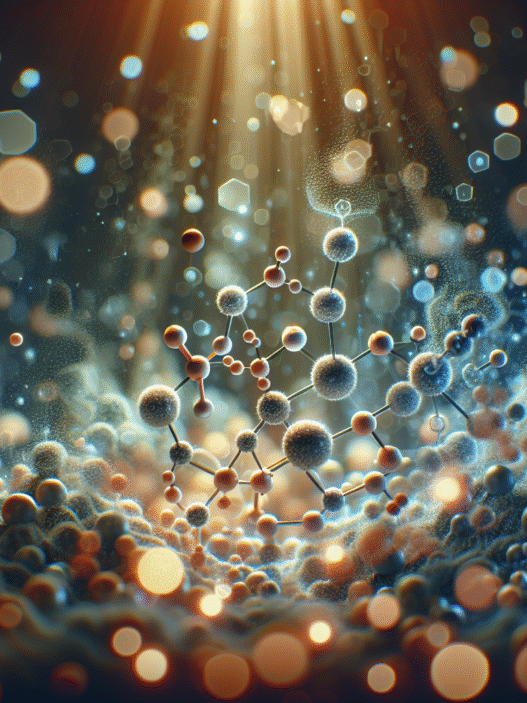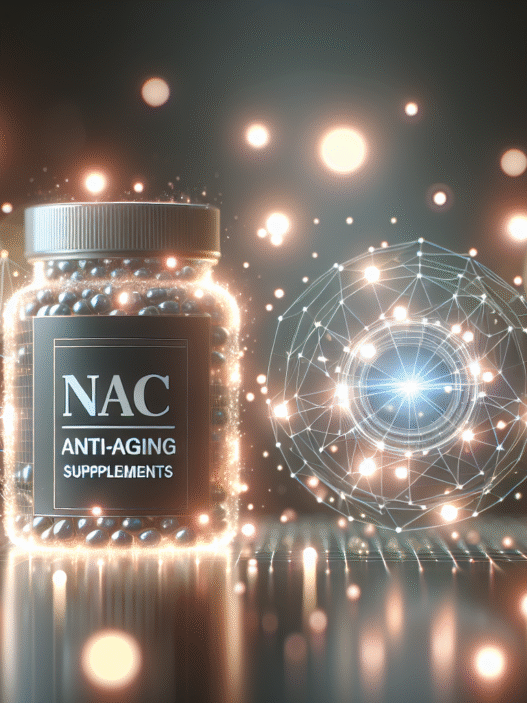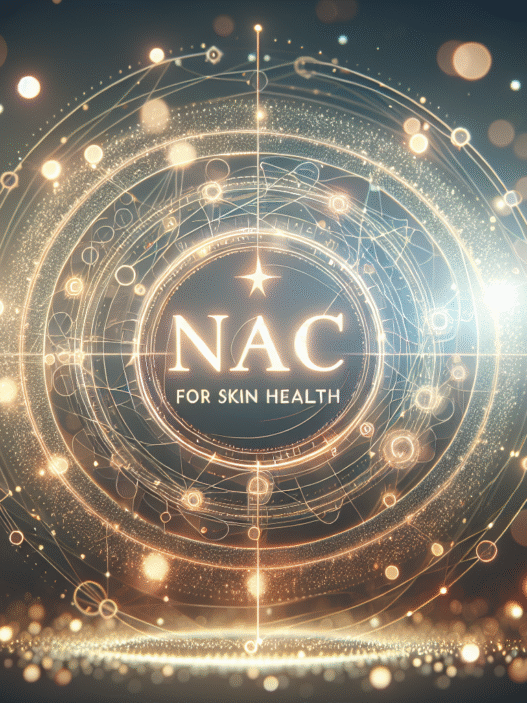Understanding NAC Benefits
Introduction to N-Acetyl Cysteine
N-Acetyl Cysteine (NAC) is a derivative of the amino acid cysteine. It is recognized for its potential health benefits, particularly in supporting the body’s natural detoxification processes and acting as a powerful antioxidant. As NAC gains visibility in the health and skincare communities, its protective qualities and ability to bolster glutathione production, an important antioxidant, are becoming increasingly valued. Glutathione helps to shield the body and skin from oxidative damage caused by environmental stressors, making NAC a relevant component in various health and skincare discussions.
Skin Benefits of NAC
NAC offers a range of benefits for skin health, contributing to a more vibrant and youthful appearance. It is widely acknowledged for reinforcing the skin’s protective and regenerative abilities. By supporting glutathione production, NAC protects skin cells from oxidative damage caused by UV exposure, pollution, and other environmental factors (City Skin Clinic).
Some of the notable skin benefits of NAC include:
| Skin Benefit | Description |
|---|---|
| Antioxidant Protection | NAC provides antioxidant support, helping to neutralize free radicals that cause skin aging and damage. |
| Anti-inflammatory Properties | NAC reduces inflammation, which can help with conditions like acne and uneven skin tone (Indian Journal of Dermatology, Venereology and Leprology). |
| Enhanced Repair Mechanisms | NAC works synergistically with other skincare ingredients to enhance the skin’s repair processes, contributing to improved texture and tone. |
| Skin Barrier Support | NAC strengthens the skin’s natural defenses, creating a healthier environment to protect it from stress and irritation. |
Through consistent use, NAC may help in achieving a smoother, brighter, and more resilient complexion. Those looking for effective methods to harness the benefits of NAC can explore various n-acetyl cysteine skincare formulations. The ingredient has displayed promising results in enhancing skincare regimens, making it a versatile addition for individuals focused on skin health and anti-aging treatments.
For a deeper understanding of how NAC can be utilized for skin care, refer to our article on n-acetyl cysteine for skin, which offers insights into its effective application in skincare routines.
NAC for Skin Health
N-Acetyl Cysteine (NAC) not only serves as a powerful antioxidant but also plays a critical role in promoting skin health. It strengthens the skin’s defenses and actively supports various skincare regimens.
Strengthening Skin’s Defenses
NAC enhances the skin’s protective and regenerative capabilities by promoting the production of glutathione, an essential antioxidant that protects skin cells from oxidative stress due to UV exposure, pollution, and other environmental influences. By replenishing glutathione levels, NAC helps maintain redox balance within cells, providing an extra layer of defense against these damaging factors.
Additionally, NAC possesses properties that allow it to directly scavenge reactive oxygen species. This makes it a superior option compared to other antioxidants like glutathione alone or L-cysteine in supporting the skin’s resilience. Studies indicate that NAC may significantly reduce conditions such as digital ulcers, highlighting its beneficial effects on skin strength and health.
Supporting Skincare Regimens
Incorporating NAC into skincare regimens can substantially amplify the effectiveness of existing products. Regular use of NAC can contribute to a smoother, brighter, and more youthful complexion due to its ability to enhance the skin’s hydration levels and decrease transepidermal water loss (TEWL), particularly in individuals with atopic dermatitis.
Moreover, NAC’s wound healing properties further support its inclusion in skincare routines. It promotes cell proliferation and collagen expression, facilitating the repair processes in various types of skin wounds. This indicates that NAC not only strengthens the skin but also aids in healing, which can be beneficial for those concerned about skin integrity and rejuvenation (Indian Journal of Dermatology, Venereology and Leprology).
| NAC Benefits for Skin | Explanation |
|---|---|
| Antioxidant Properties | Replenishes glutathione, protecting skin from oxidative damage. |
| Strengthens Skin Barrier | Reduces transepidermal water loss, improving hydration levels. |
| Promotes Wound Healing | Stimulates cell proliferation and collagen synthesis. |
As individuals seek to optimize their skin health and fight the signs of aging, incorporating NAC into their daily routines can provide significant enhancements in skin resilience and overall appearance. For those looking for focused information on this topic, further insights can be found in our articles on n-acetyl cysteine for skin and n-acetyl cysteine benefits.
NAC and Skincare
N-Acetyl Cysteine (NAC) is gaining recognition not only for its systemic benefits but also for its impactful role in skincare. This section will explore how NAC complements other skincare ingredients and enhances the skin’s natural repair mechanisms.
Complementing Skincare Ingredients
NAC works effectively in synergy with various skincare components. Its unique properties allow it to enhance the efficacy of other ingredients, making it a versatile addition to different skincare regimens. By replenishing glutathione levels, NAC helps to maintain a favorable redox balance in skin cells, thereby supporting overall skin health.
Topical applications of NAC, especially in concentrations around 20%, have been shown to increase skin hydration significantly. This leads to a noticeable reduction in transepidermal water loss (TEWL), which is essential for maintaining healthy skin, particularly for those suffering from conditions such as atopic dermatitis.
The ability of NAC to enhance hydration levels further supports its reputation as a powerful ingredient in anti-aging formulations. Skin that retains moisture appears plumper and smoother, effectively reducing the visibility of wrinkles and other signs of aging.
Enhancing Repair Mechanisms
The versatility of NAC extends to its capacity to enhance the skin’s inherent repair mechanisms. NAC is known for its antioxidant properties, which protect skin cells from oxidative stress and damage caused by free radicals. This action is crucial for the skin’s regeneration process and can lead to improved skin texture and tone.
Research indicates that NAC has shown promising outcomes in treating various skin ailments, including acne, toxic epidermal necrolysis, and other dermatological conditions. Its antioxidant effects not only aid in repairing existing damage but also play a protective role against future harm.
In psychodermatological conditions like trichotillomania, NAC has been beneficial due to its ability to modulate glutamate levels. This modulation can reduce compulsivity in behaviors that affect skin health, further highlighting NAC’s multifaceted approach to skincare and overall skin rejuvenation.
For those looking to incorporate NAC into their skincare routines, exploring its various applications and benefits through NAC supplements for skin and n-acetyl cysteine skin care products can enhance their anti-aging efforts.
NAC’s Role in Health
N-Acetyl Cysteine (NAC) has garnered attention not only for its skin benefits but also for its significant roles in overall health, particularly in detoxification and potential weight management. This section will delve into these critical aspects of NAC.
Detoxification and Longevity
NAC acts as a powerful antioxidant that supports the body’s natural detoxification processes. It assists in replenishing glutathione levels, one of the body’s most potent antioxidants, which plays a vital role in detoxifying harmful substances from the liver and other organs. This process can enhance liver health and promote longevity (WebMD).
The anti-inflammatory properties of NAC are also noteworthy. By inhibiting redox-sensitive nuclear factor-kappa B, NAC helps lower the production of pro-inflammatory cytokines during periods of oxidative stress. This reduction in inflammation can have a cascading effect on overall health, potentially reducing the risk of diseases related to oxidative stress.
Potential Obesity Control
Research suggests that NAC may play a role in managing obesity by influencing several key processes such as fat storage, energy metabolism, and hormone balance. By lowering inflammation and oxidative stress, NAC may help improve fat tissue function and reduce insulin resistance (WebMD). While further studies are necessary to fully understand its effectiveness, initial findings indicate that NAC could be a helpful adjunct in weight management strategies.
For individuals aiming to improve their overall health while seeking ways to manage weight, incorporating NAC into their regimen may offer benefits. The potential for NAC to influence fat storage and energy metabolism suggests it could be a valuable component of a holistic approach to wellness.
The benefits of NAC extend beyond skin care into liver health and weight management, making it a versatile compound worthy of consideration in various health contexts. For those interested in its skin-related advantages, you may explore more about its n-acetyl cysteine skin benefits.
Beyond Skincare
N-Acetyl Cysteine (NAC) offers benefits that extend far beyond skincare, reaching areas such as reproductive health and mental wellness. Individuals concerned about overall health and longevity should take note of these additional advantages.
Reproductive Health Benefits
NAC has shown promising potential in improving fertility for individuals of all sexes. Men and those assigned male at birth experiencing infertility often see enhancements in semen quality when combining NAC with selenium. For women and those assigned female at birth, particularly with infertility linked to conditions such as polycystic ovary syndrome (PCOS), NAC may help regulate ovulation (WebMD). This makes NAC a valuable supplement for those looking to support their reproductive health.
| Population | NAC Effects |
|---|---|
| Men with infertility | Improved semen quality |
| Women with PCOS | More regular ovulation |
Mental Health Support
Research suggests that NAC may play a role in mental health support by reducing symptoms of various psychiatric disorders. NAC has been studied in relation to conditions like depression, bipolar disorder, and obsessive-compulsive disorder (OCD). Its antioxidant properties help mitigate oxidative stress, which is often a contributing factor to mental health issues. Additionally, NAC has the potential to enhance overall brain function and well-being, making it a valuable addition to the mental health toolkit.
By incorporating NAC into their wellness routine, individuals can benefit from its multifaceted effects, ranging from reproductive health enhancements to support for mental clarity and emotional balance. For more about NAC’s advantages, explore our article on n-acetyl cysteine benefits and discover more about its applications in various domains, including detoxification and anti-aging.
Clinical Applications of NAC
N-Acetyl Cysteine (NAC) not only provides notable skin benefits but also has various clinical applications. Primarily, it is recognized for its role in treating specific medical conditions and promoting wound healing.
Treatment Applications
NAC has been employed clinically to address several conditions, including acetaminophen toxicity, chronic obstructive pulmonary disease, and Cystic fibrosis, among others. According to research, its use extends to treating diabetes and acute smoke inhalation injuries, demonstrating significant therapeutic potential (NCBI PMC). These applications stem from NAC’s ability to increase glutathione levels, an essential antioxidant that protects cells from oxidative stress.
One table displaying treatment applications and conditions NAC can aid is below:
| Condition | Clinical Application |
|---|---|
| Acetaminophen Toxicity | Antidote to prevent liver damage |
| Chronic Obstructive Pulmonary Disease | Mucolytic agent to ease breathing |
| Cystic Fibrosis | Improve lung function and mucus clearance |
| Diabetes | May contribute to glycemic control |
| Acute Smoke Inhalation Injury | Protects lungs and enhances recovery |
This demonstrates NAC’s diverse applications within a medical setting.
Wound Healing Properties
NAC’s wound healing properties are increasingly recognized. It enhances cell viability and promotes the migration of skin cells, which is vital for effective healing. In clinical studies, the administration of NAC alongside oral antioxidants, such as vitamin C and vitamin E, has resulted in reduced incidences of wound infections and shorter healing times for burn patients.
Moreover, NAC has shown to increase matrix metalloproteinase-1 (MMP-1) expression, a crucial enzyme involved in the degradation and remodeling of extracellular matrix components, facilitating the wound healing process.
A summary table illustrating the positive effects of NAC in wound healing is below:
| Effect Observed | Description |
|---|---|
| Increased Cell Viability | Enhances growth and survival of skin cells |
| Enhanced Migration | Promotes faster wound closure |
| Reduced Infection Rates | Lowers chances of complications in burn recovery |
| Shortened Healing Time | Speeds up overall recovery process |
The ability of NAC to maintain redox balance and scavenge reactive oxygen species contributes significantly to its role in skin health and longevity, making it an advantageous treatment option for various medical conditions. For additional insights on NAC and its skin benefits, explore more resources on its applications and efficiency in promoting skin rejuvenation.





















